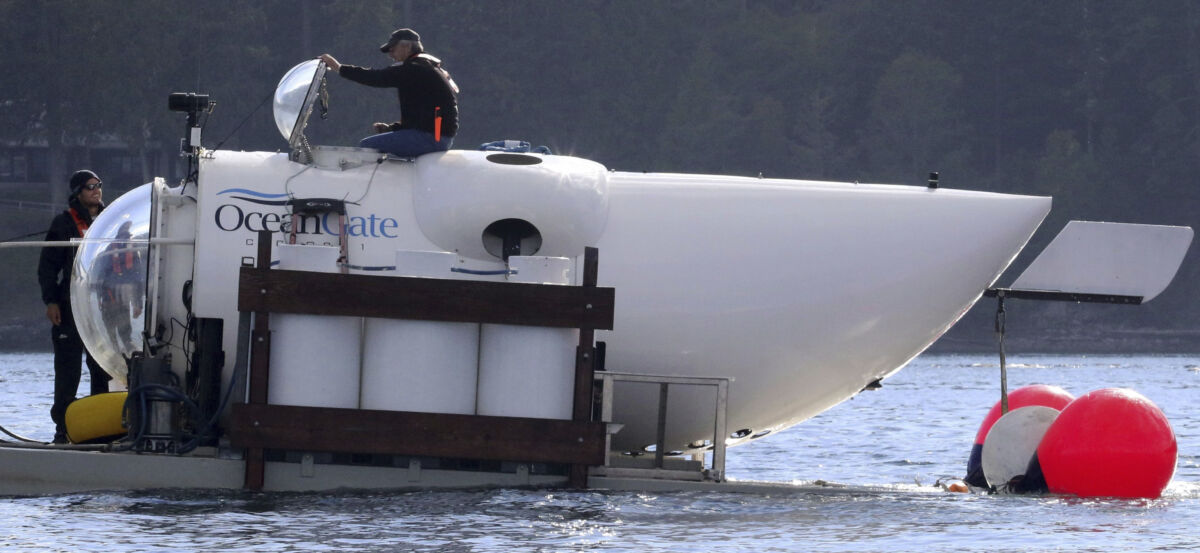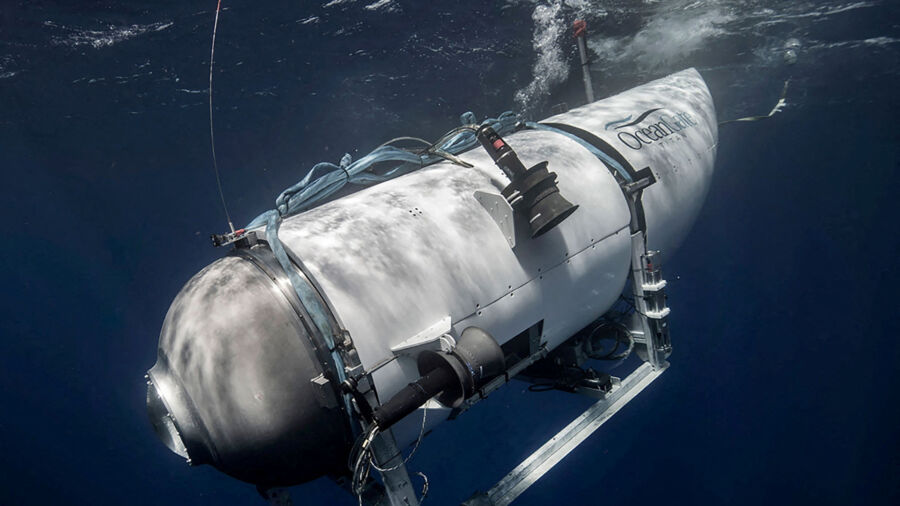The operator of a submersible vehicle that went missing while trying to view the Titanic wreckage in the Atlantic Ocean said that it’s likely all five people on board have died, while U.S. Coast Guard officials said a “catastrophic implosion” likely occurred.
“We now believe that our CEO Stockton Rush, Shahzada Dawood and his son Suleman Dawood, Hamish Harding, and Paul-Henri Nargeolet, have sadly been lost,” OceanGate said in a statement on Thursday afternoon, coming hours after the U.S. Coast Guard confirmed it had found a “debris field” near the Titanic.
“These men were true explorers who shared a distinct spirit of adventure, and a deep passion for exploring and protecting the world’s oceans. Our hearts are with these five souls and every member of their families during this tragic time. We grieve the loss of life and joy they brought to everyone they knew. This is an extremely sad time for our dedicated employees who are exhausted and grieving deeply over this loss,” the statement continued to say.
In a 3 p.m. news conference, Coast Guard Rear Admiral John W. Mauger said the officials found five objects in a debris field near the Titanic wreckage that appeared to belong to the missing submarine, indicating that there was a “catastrophic event. They also found a second, smaller debris field that included other pieces of the submersible.
Mauger later described the event as a “catastrophic implosion” as debris was found on the ocean floor around 1,600 feet away from the bow of the Titanic. It was “consistent with catastrophic loss of the pressure chamber” in the submersible, he said.
“Upon this determination, we immediately notified the families,” Mauger added. “On behalf of the United States Coast Guard and the entire unified command, I offer my deepest condolences to the families. I can only imagine what this has been like for them. “And I hope that this discovery provides some solace during this difficult time.”
The Titan was estimated to have about a four-day supply of breathable air when it launched Sunday morning in the North Atlantic—but experts have emphasized that was an imprecise approximation to begin with and could be extended if passengers have taken measures to conserve breathable air. And it’s not known how long they survived since the sub’s disappearance.

OceanGate’s statement also said the company “is deeply grateful for the countless men and women from multiple organizations of the international community who expedited wide-ranging resources and have worked so very hard on this mission” while it also appreciates “their commitment to finding these five explorers, and their days and nights of tireless work in support of our crew and their families.”
“This is a very sad time for the entire explorer community, and for each of the family members of those lost at sea,” it also said. “We respectfully ask that the privacy of these families be respected during this most painful time.”
Rescuers have rushed ships, planes, and other equipment to the site of the disappearance. On Thursday, the U.S. Coast Guard said an undersea robot sent by a Canadian ship had reached the sea floor, while a French research institute said a deep-diving robot with cameras, lights, and arms also joined the operation.
Authorities have been hoping underwater sounds might help narrow their search, whose coverage area has been expanded to thousands of miles—twice the size of Connecticut and in waters 2.5 miles deep. Coast Guard officials said underwater noises were detected in the search area Tuesday and Wednesday.

Jamie Pringle, an expert in Forensic Geosciences at Keele University, in England, said even if the noises came from the submersible, “The lack of oxygen is key now; even if they find it, they still need to get to the surface and unbolt it.”
The Titan was reported overdue Sunday afternoon about 435 miles (700 kilometers) south of St. John’s, Newfoundland, as it was on its way to where the iconic ocean liner sank more than a century ago. OceanGate Expeditions, which is leading the trip, has been chronicling the Titanic’s decay and the underwater ecosystem around it via yearly voyages since 2021. By Thursday morning, hope was running out that anyone on board the vessel would be found alive.
Before OceanGate’s statement, a co-founder of OceanGate wrote on social media that he was optimistic that there would be enough oxygen on board the submarine.
The Associated Press contributed to this report.
From The Epoch Times


